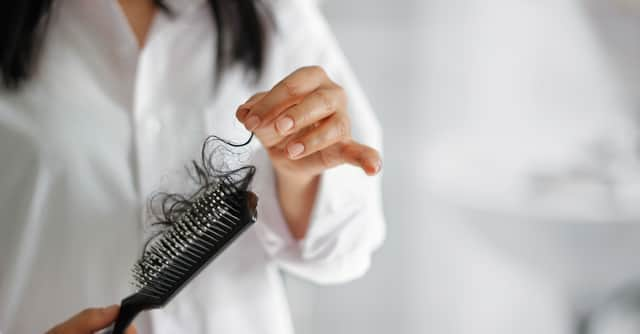Almost a quarter of Covid patients suffer from hair loss - and women are more at risk


A new study has found that almost a quarter of Covid-19 patients suffer from hair loss within the first six months of being infected, with women more at risk.
The researchers were studying a range of long term symptoms of Covid-19, and found that 359 out of 1,655 patients hospitalised in Wuhan, China, suffered from hair loss.
Advertisement
Hide AdAdvertisement
Hide AdThe findings, published via medical journal The Lancet, listed hair loss as a primary symptom alongside fatigue, muscle weakness, sleep difficulties and smell disorders.
The study says: “The long term health consequences of Covid-19 remain largely unclear.”
How was the study conducted?
The researchers followed up with patients who had been in hospital with confirmed Covid-19 and were discharged from Jin Yin-tan Hospital between 9 January and 29 May 2020.
Jin Yin-tan Hospital was the first designated hospital for patients with Covid-19 in Wuhan, China.
The following patients were excluded from the study:
- Those who died before the follow up visit
- Those for whom a follow up would be difficult due to “psychotic disorder, dementia, or re-admission to hospital attributed to underlying diseases”
- Those who were unable to move freely due to “concomitant osteoarthropathy or immobile before or after discharge due to diseases such as stroke or pulmonary embolism”
- Those who declined to participate in the study
- Those who were unable to be contacted
- Those living outside of Wuhan, or in nursing or welfare homes
Advertisement
Hide AdAdvertisement
Hide AdThe study says: “All patients were interviewed with a series of questionnaires for evaluation of symptoms and health-related quality of life, underwent physical examinations and a 6-min walking test, and received blood tests.”
‘Higher proportion of women’
The study found that 76 per cent of patients reported at least one symptom six month after symptom onset, and the proportion “was higher in women”.
The most common symptoms were fatigue or muscle weakness and sleep difficulties.
Additionally, 23 per cent of patients reported anxiety or depression at the follow up.
‘Telogen effluvium’
Advertisement
Hide AdAdvertisement
Hide AdHealth site Healthline says that the hair loss that’s been seen following Covid-19 is consistent with a condition called “telogen effluvium” (TE).
Most people who develop TE have noticeable hair loss around two to three months after a triggering event, such as Covid-19.
“This typically affects less than half of the scalp and lasts for six to nine months,” Healthline explains.
After this period of time, most people will find that the lost hair will come back.